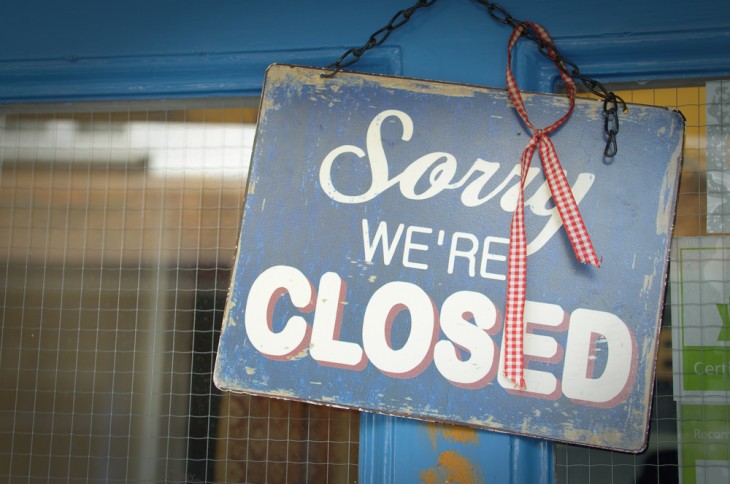According to CB Insights, here are 20 reasons why startups fail
Recently, CB Insights - a public service provider specializing in synthesizing, analyzing and reporting data, has conducted 101 "failed" investigations to find the leading causes of this tragic situation. This is also the concern of many people who are nurturing the dream of entrepreneurship, current startups, companies, organizations, corporations, economic experts and researchers.
Here are the 20 most prominent reasons that CB Insights synthesized and analyzed from the sincere sharing of "brave" founders who failed to start their businesses. However, before going deeper, there are two things you need to know, which are: (1) rarely does a startup fail for a single reason and (2) the reason for the failure is so much. format.
Note : All articles shared by the founders of the failed startups.

20. No key points are identified when needed
Don't quickly move or not fast enough to give up an inappropriate product, hire the wrong person or make a wrong decision to "contribute" 7% to the failure of startups. Being too rigid or sticking with a bad idea can waste resources and assets as well as cause employees to lose motivation to work. According to Keith Nowak 's founder, "We are at the center of a vertical axis - partly a strategy that we know will not work and the rest we believe will be successful but not enough. This is an extremely difficult point to make decisions, including with employees and management, although we have put all the resources available for this difficult period but we still can't find it. get a clear goal ".
19. Overload
Balance between life and work is not something that startup founders are often interested in leading to very high risk of overload, accounting for 8% of the reasons why startups fail. The ability to cut holes when needed and redirect when seeing "dead spots" are two very important factors to continue, just as you have a mind-set working group and the responsibilities are divided equally for each member of the group.
When "examination" Blurtt , the founder of this startup shared about the impact of overload on the survival of the business as follows: "I began to feel overwhelmed. I became a leader. I was late every night to think about Blurtt (what to do with it, torment myself about my mistakes, think about those who "played me badly" "And saying to myself that I cannot become a" successful model "in Silicon Valley. I am completely exhausted. Although there are no scars that take 2 to 3 years to heal, perhaps, because of me. I had withdrawn in time but I also had to slash the whole body, mind and money I had on it. "
18. Don't know how to take advantage of investor relationships

Entrepreneurs often complain that they do not have relationships or do not have links with investors and this is one of the reasons why startups fail. According to Kiko , " Connect with investors right from the start and don't be afraid to ask for help. They will be there to help you. I think we made mistakes from the beginning when we tried to do it ourselves." everything and this is a mistake ".
17. Legal barriers
Sometimes, from a simple idea turned into a company filled with the legal procedures to be followed is the core cause of a failure.Turntable.fm - an unsuccessful start-up company shared that it spent more than half of its cash just to deal with legal procedures and related services. In the end, they were forced to stop their ideas because the product could not be marketed internationally.
16. Can't call capital
Lack of money due to not attracting the interest of investors for the idea or investing too much in the "seed" stage is also the reason many start-up ideas "went out".
15. Location is not suitable
Location is an issue that affects entrepreneurship in many respects. First of all, there should be harmony between the idea and the place.Meetro , "We launched the product and introduced them to all our friends in Chicago. We have big signs to promote our image. Everything went great but soon, sprinkled. That is the fact that there are hundreds of users who use it positively, but that doesn't mean you have it, even if it's only 2 active users of the Milwaukee - less than 100 miles away, not to mention New York. San Francisco Ideas and products are not simply measured by geographical distance. "
Location also makes remote startup teams fail: lack of effective connection and interaction methods will lead to management problems.
14. Lack of passion
9% of failing startups come from a lack of passion and do not attempt to learn, but only aim at business without appreciating customers' needs.
13. Do not admit mistakes

Entrepreneurs need to have a careful calculation when they want to change their business model, test and measure results carefully. If you're still stubborn and unwilling to admit your mistake, it will make startups burn a lot of money, discouraging employees and giving up products.
12. Lack of harmony between investors and founding members
Disagreements between founders and investors or between founding members are signs of "death" for the "death" of starting a business.
11. Lost focus
Distracted, distracted by personal problems or other projects "contributing" 13% to the risk of failures of startups.
10. Choose the wrong time to launch the product to the market

If the product launches too early, users may not feel the perfection of the product and the recall will obviously make the impression of your company become very negative. If you launch too late, you may have missed the lead.
09. Lack of flexibility and not actively exploiting customer feedback
Not appreciating customers is the reason why failure has been proved by many examples in practice. Unfortunately, most startups ignore the user feedback phase.
08. Poor marketing strategy
Knowing your target customers and knowing how to attract attention and turning them into end-users to use products is one of the most important elements of a business. However, this is the weakness of the founders who just like to write code and create products. They have almost no knowledge about media and advertising activities.
According to Overto : "The gap between the existence and disappearance of an Internet service is the number of users. In the first stage, this number can be increased in a systematic way. This marketing department must work to maintain growth and stability, however, none of us understand this area at all, worse, no one has enough time to find out. is why Overto failed ".
07. No suitable business model

Not having a business strategy from the beginning is the common point of startups when talking about the cause of their failure. Great ideas are not enough.
06. Product is not user friendly (poor quality)
The worst things happen when you ignore users' wishes and needs.
05. Product prices are not competitive
Valuation of products that are too high or too expensive is a risk to the business.Delight IO once faced this problem, their customers complained and despite trying to solve the problem, they could not meet the expectations of the "gods".
04. No competitive advantage
Although many startups say that they don't pay attention to competing with big brands in the market, in fact, when the idea of business has become a real product, if you want to survive, the product must be difference. Ignoring the determination of competitive advantage will be the way that startups face 19% of the risk of failure.
03. Not a team that understands each other

A working group with many different skills is seen as a core element of a startup's success. On the contrary, if the members have overlapping, contradictory views, no complementary skills, too many people know about one thing but seriously lack of other knowledge will become the cause. leads to ideas that never come true.
02. Lack of capital
Money and time are limited. Therefore, they need to be appropriately allocated. How much money to invest is obviously a difficult question and if you don't answer it, it is not difficult to understand when your startup idea is never successful.
01. Ideas are not what the market needs
Your idea solves a problem but it is not a market that is needed, the product is very difficult to exist. This is one of the biggest reasons for start-up is always a dream for those who do not understand the trends and tastes of users, accounting for 42% of the total 20 causes on this list. So make sure your product is always in demand before deciding to develop it.
You should read it
- ★ 5 serious illusions that any entrepreneur should avoid
- ★ 9 start-up lessons from Silicon Valley
- ★ Starting a business: 4 things to remember when conflicts occur between members of the founding group
- ★ 7 simple ways to find a startup idea
- ★ To call for start-up capital, startup founders need to have these 3 qualities